subhaan Allah this is brilliant ❤️❤️❤️❤️ Human being is creator's biggest miracle.. Allah is love
How a child is born
Photographer Lennart Nilsson spent 10 years of his life recording the growth of the human embryo, from conception to birth.
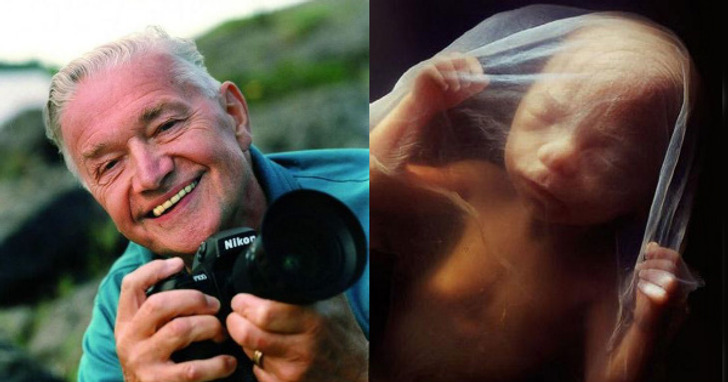
The world first heard of Lennart Nilsson in 1965, when LIFE magazine published 16 pages of his photographs of human embryos. The shots were immediately reproduced in ’Stern’, ’Paris Match’, ’The Sunday Times’, and other publications. Microscopes and the cameras were Nilsson’s main passion even in childhood. In time, the ambition formed to show the world the beauty of the human body at the micro level. He managed to take his first photos of a foetus already in 1957, but they weren’t good enough to publish.
Nilsson managed to get his most precise shots with the help of a cystoscope — a medical instrument which is used to examine the inside of the urinary bladder. He attached a camera together with a tiny light to it, and took thousands of photos recording the life of the embryo in its mother’s womb.
Nilsson produced something truly marvellous: for the first time, people were able to see with their own eyes the conception and earliest development of human life.
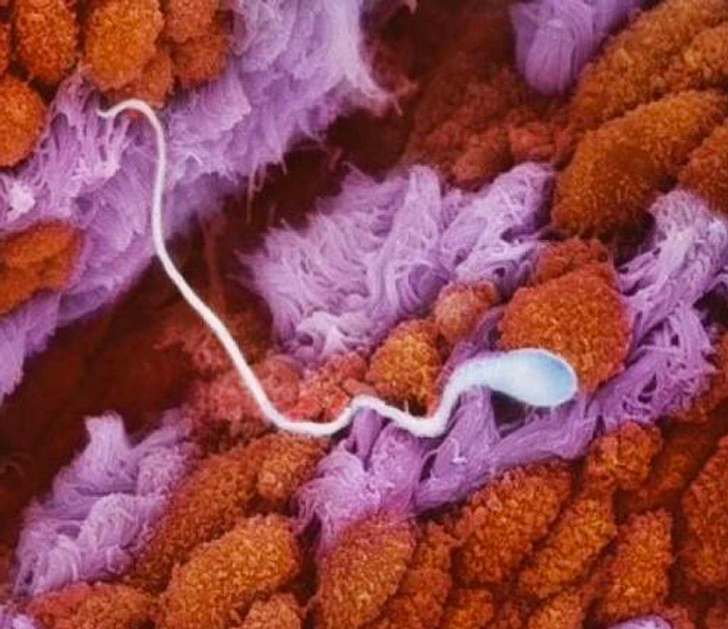
The spermatozoon moves along the fallopian tube towards the egg.
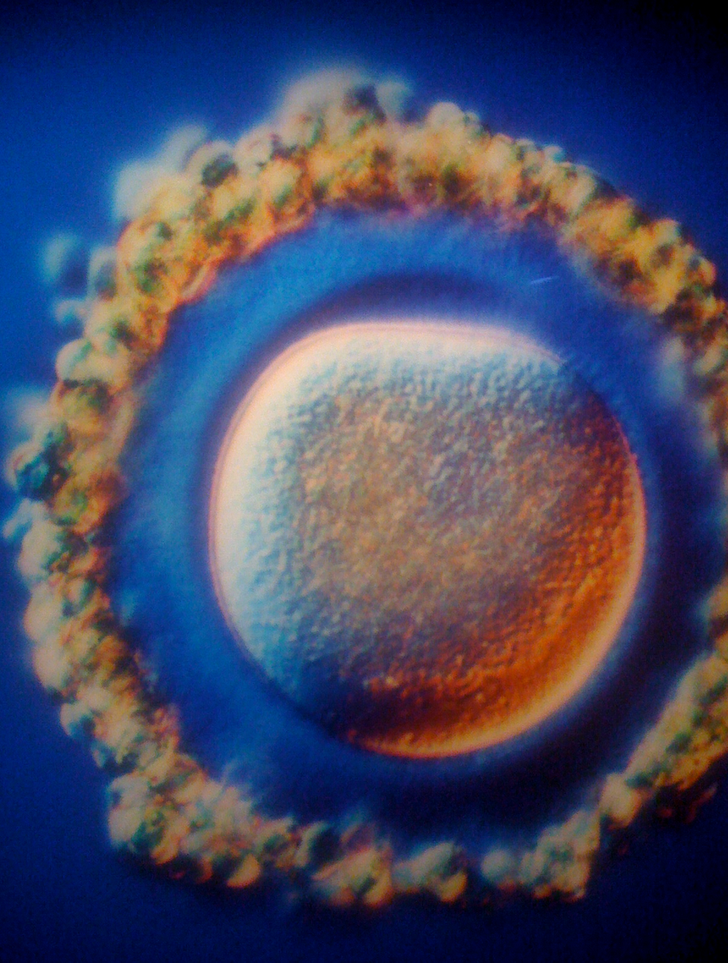
The egg
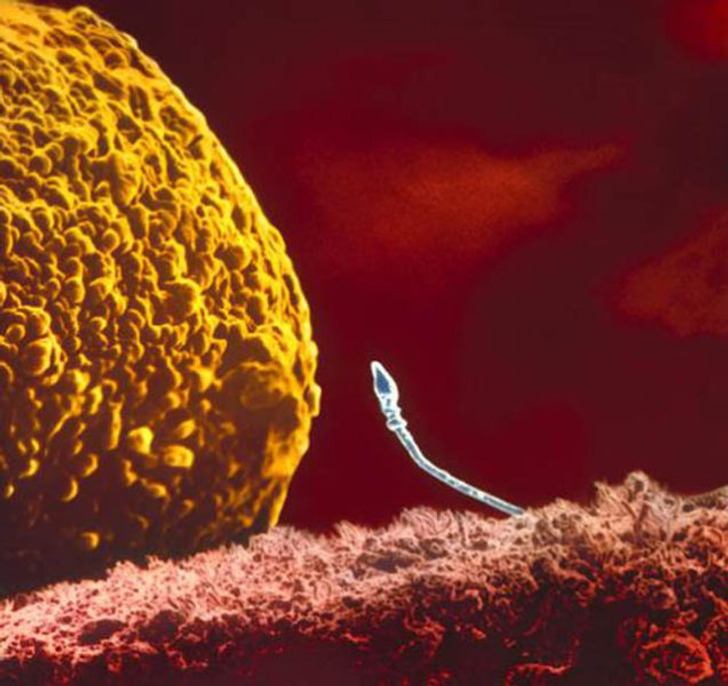
The crucial moment
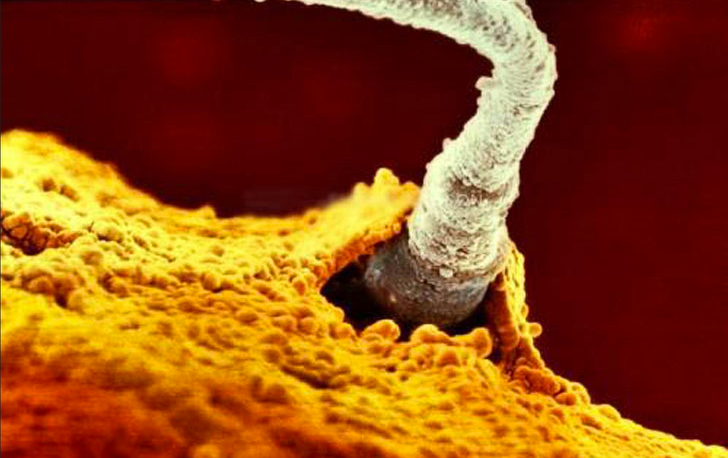
One of the father’s 200 million spermatozoa penetrates the membrane of the egg.
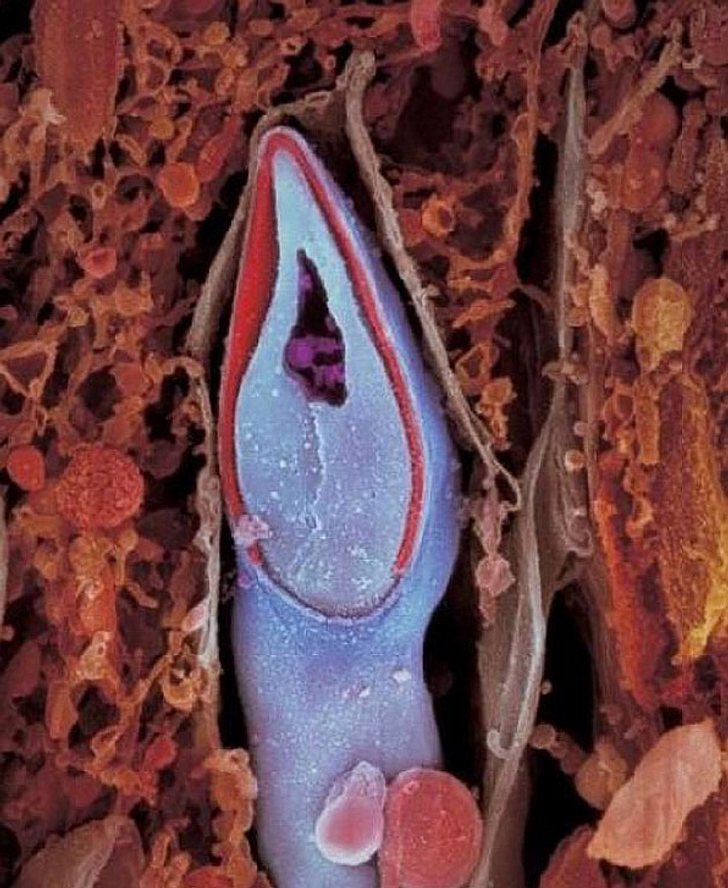
The spermatozoon’s point of view. The head contains all of the genetic material.
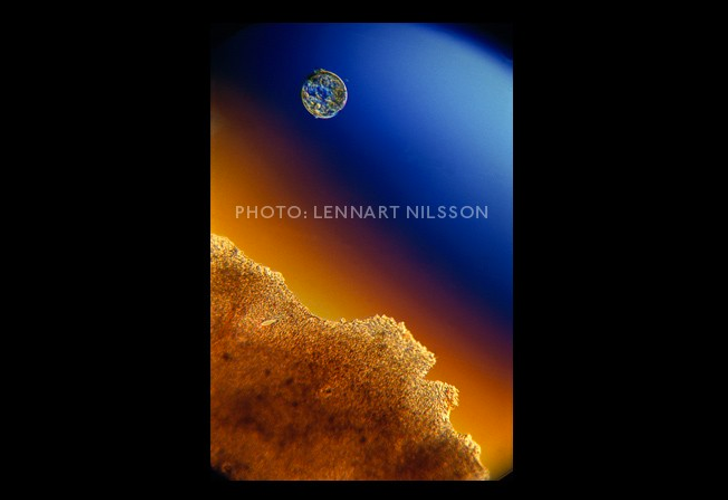
A week later, the embryo migrates to the womb by floating downwards through the fallopian tube.
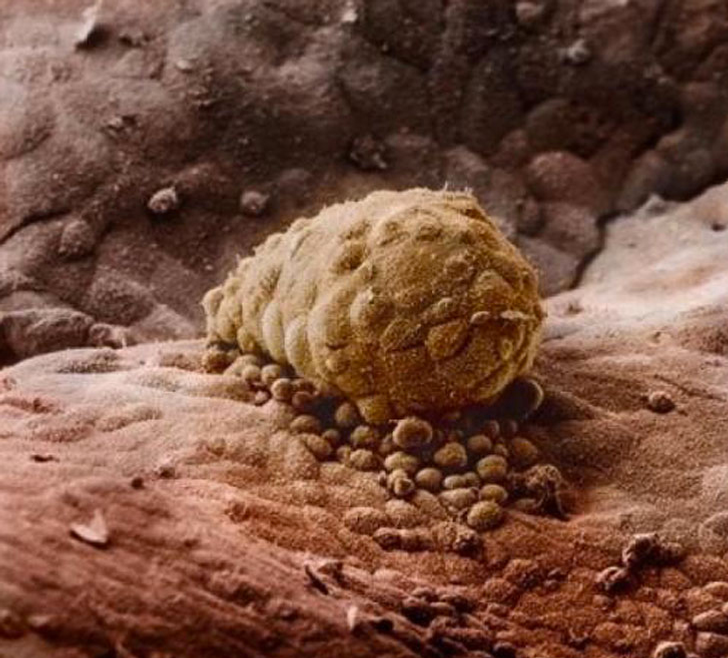
After another week, the embryo attaches to the wall of the uterus.
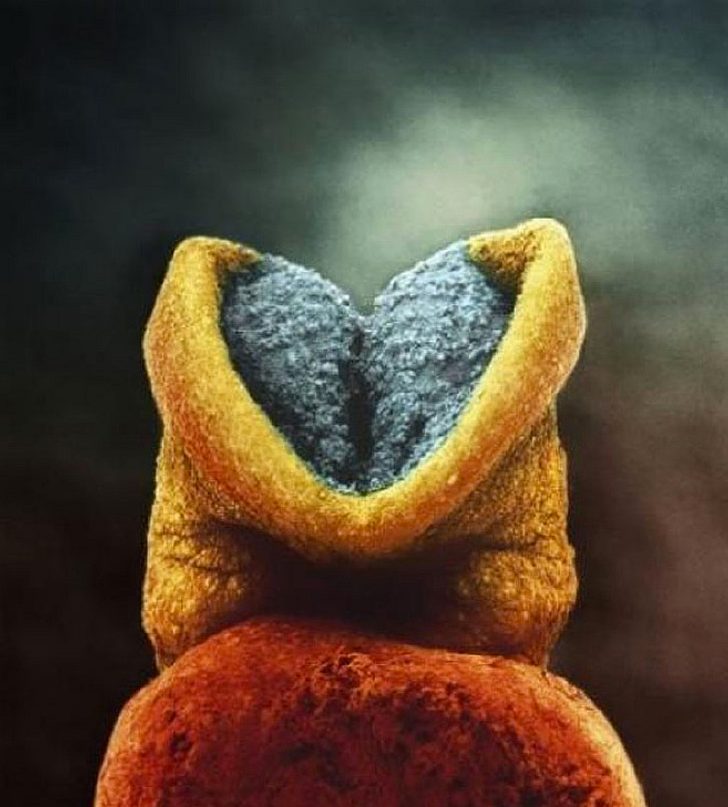
The embryo at 22 day’s development. The grey area will become the child’s brain.
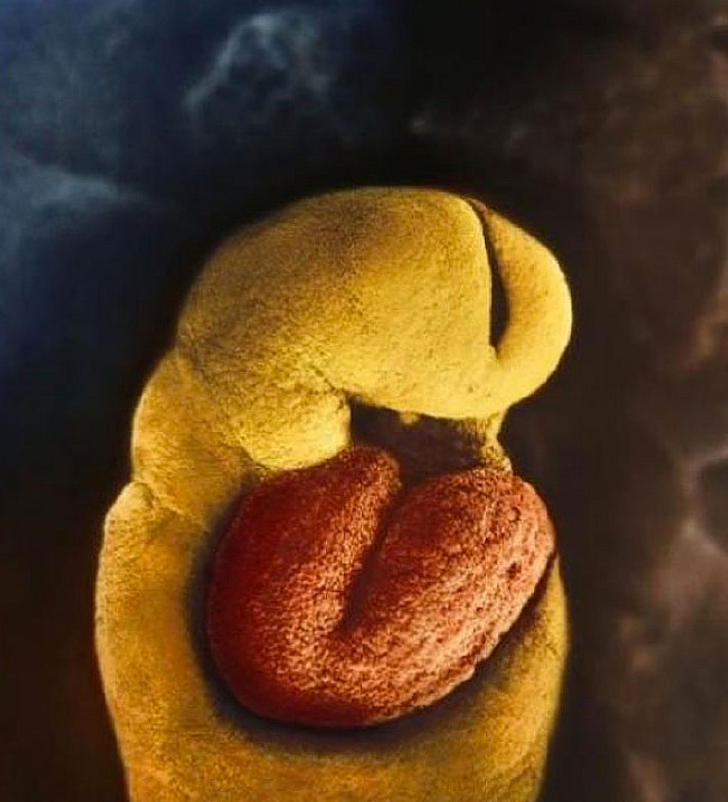
By the 18th day of development, the foetus’ heart begins to beat.
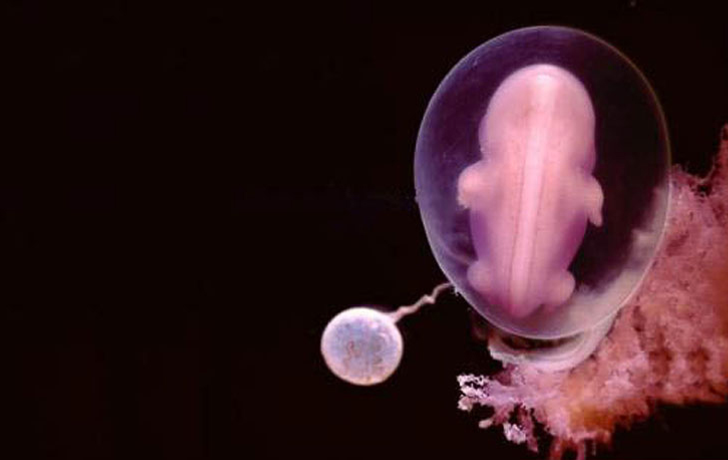
28 days after fertilisation.
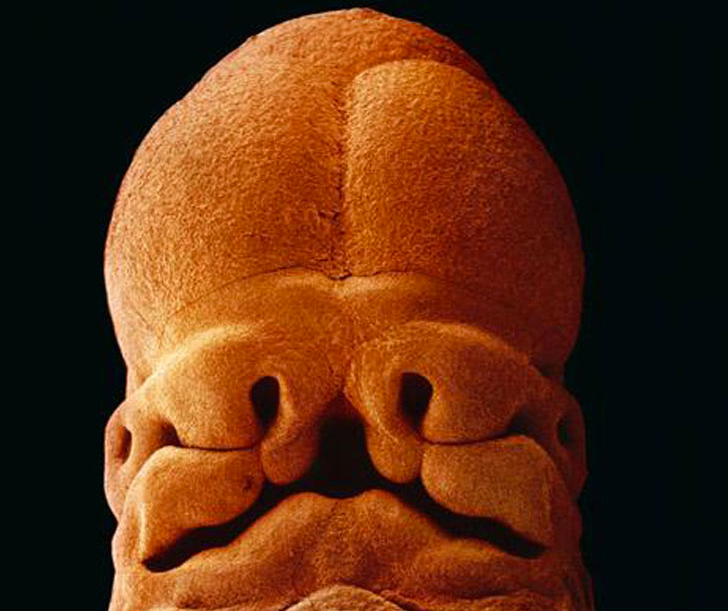
At five weeks, the foetus is 9 millimetres long; it’s already possible to see the face with its openings for the mouth, nostrils and eyes.
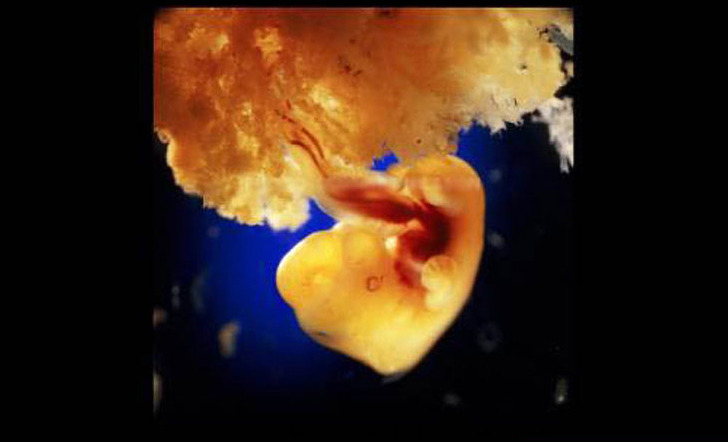
40 days of development. The exterior cells of the foetus join with the loose surface of the uterus wall to form the placenta.
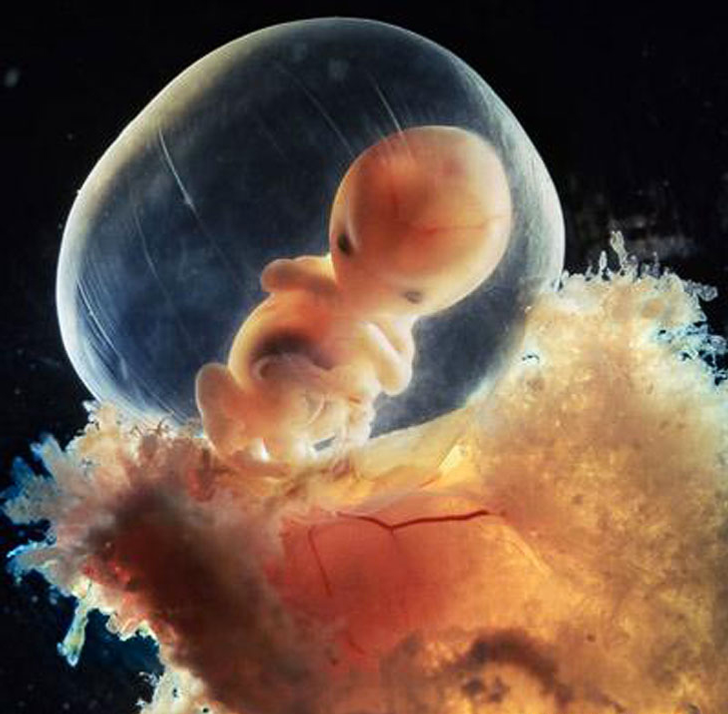
At 8 weeks of development.
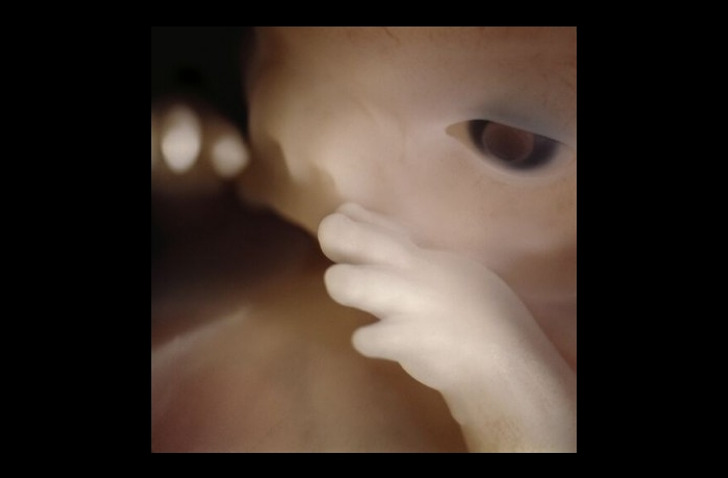
10 weeks. It’s eyelids are already half open. Within several days they will be completely formed.
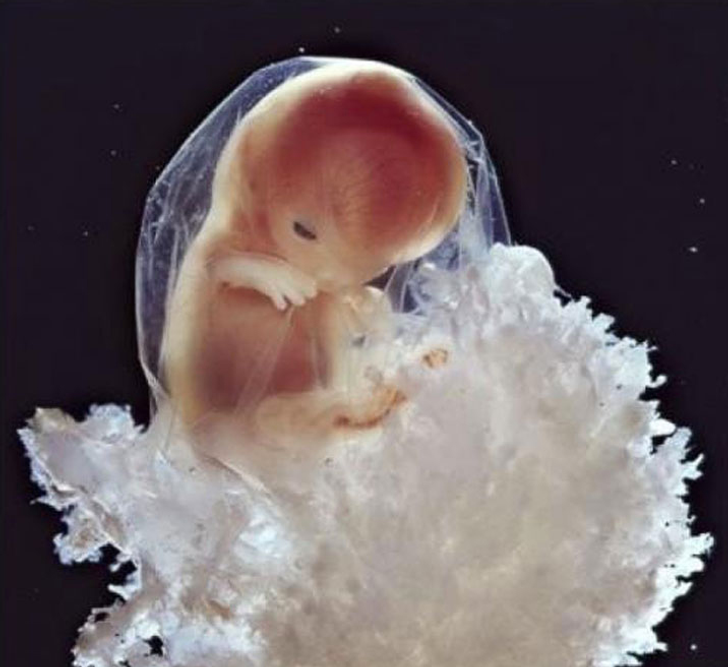
At 10 weeks, the embryo already uses its hands to study the environment.
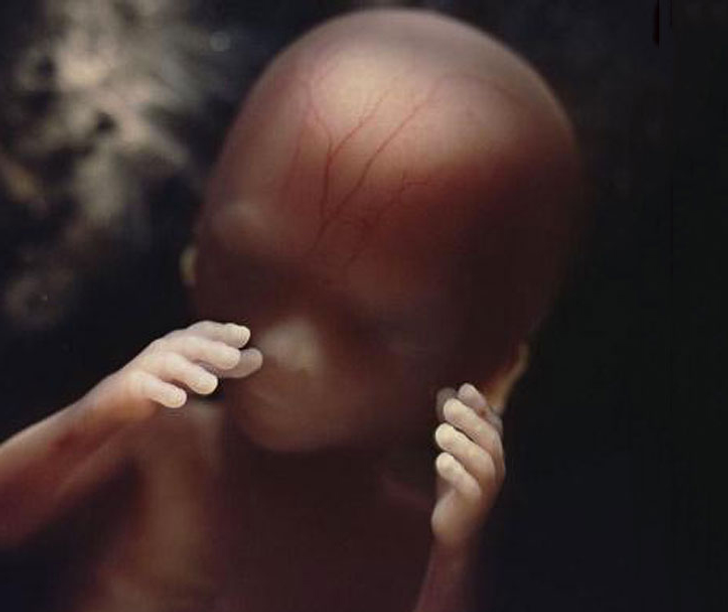
16 weeks.
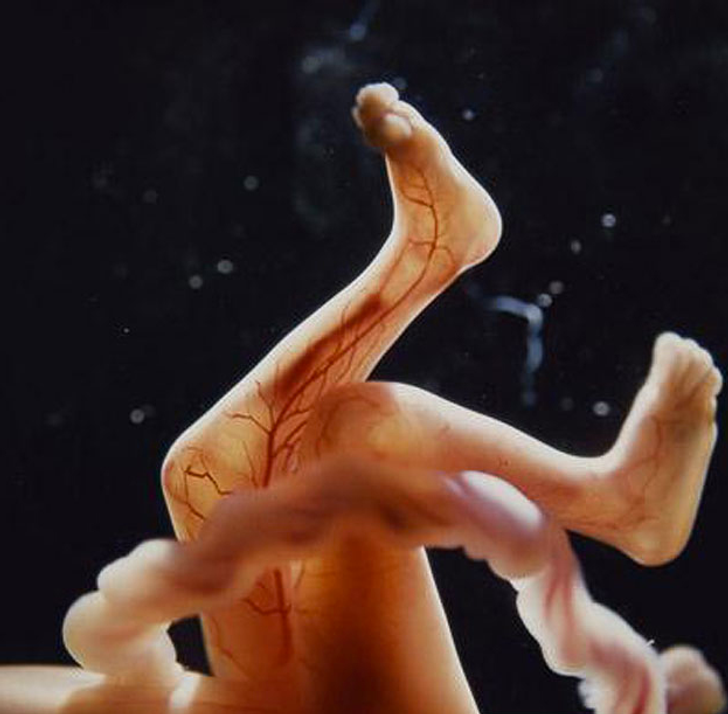
The lines of blood vessels are visible through its skin.
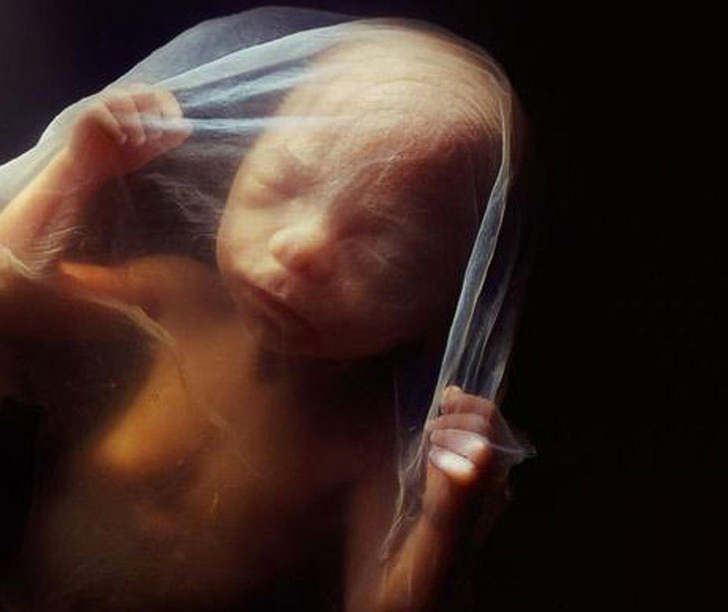
18 weeks. The foetus can now detect sounds from the outside world.
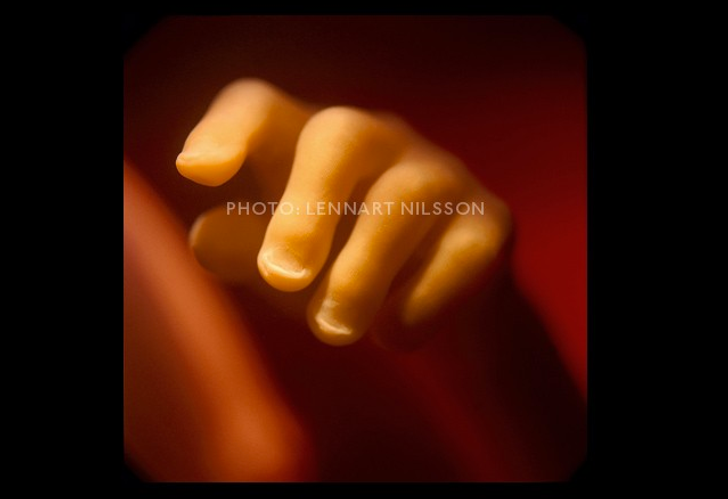
19 weeks.
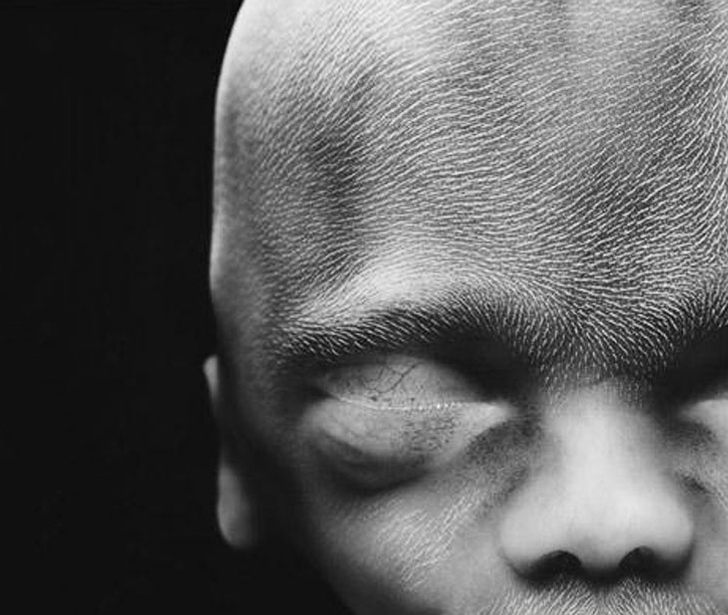
20 weeks. The foetus is now 20 centimetres long. Hair starts to appear on its head.
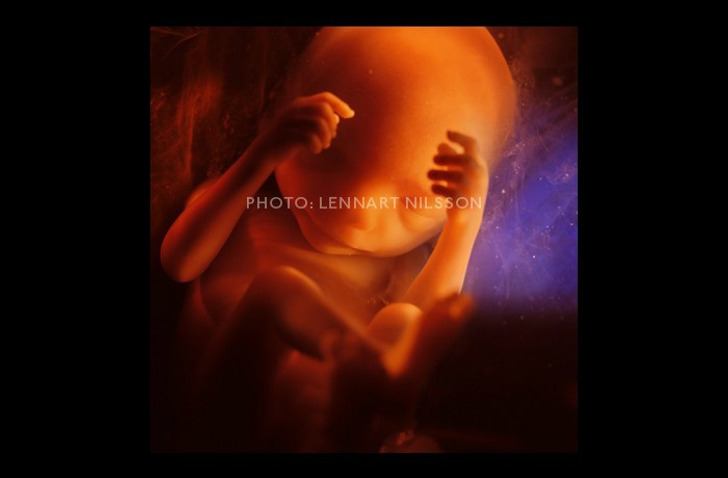
24 weeks.
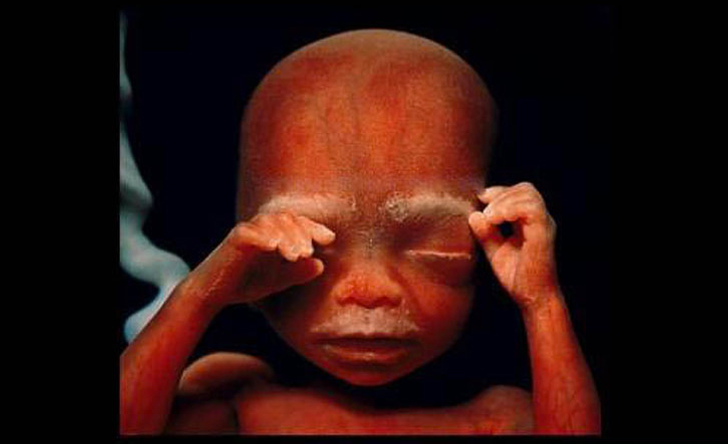
6 months.
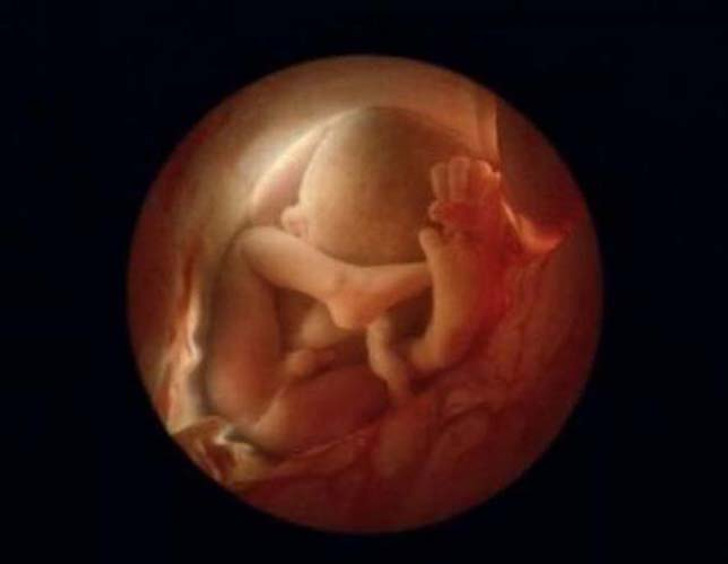
36 weeks. In a month, the baby will be born.
Nilsson’s book, ’A Child is Born’, was published in 1965. It sold out in just a few days and has been republished many times, becoming one of the most popular photography books of all time.
Lennart Nillson is now 91. He’s still interested in science and photography.
Comments
Absolutely Amazing ❣❣ Such stunning and beautiful pictures ❣❣
Related Reads
I Didn’t Want My Ex’s Wife at My Son’s Graduation — The Result Was Devastating

20 Girls Who Just Cut Their Bangs but Look Like They Got a Plastic Surgery

10 True Tales That Are As Creepy and Eerie As It Gets

10+ Comics Showing What Love Looks Like Before and After 30
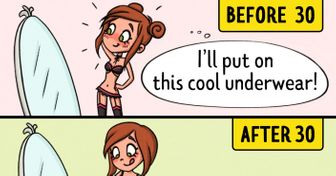
Men and Women Have Very Different Ideas About Ideal Lip Size, According to Studies

10 Mistakes Most Parents Regret Making
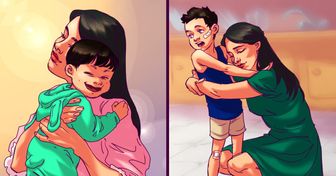
I Overruled the Strict Vegan Menu for My Son’s Wedding
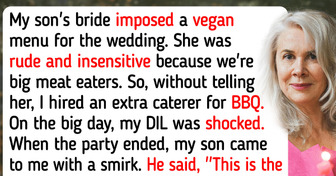
My Fiancé Wants a Joint Account, but I Don’t Want to Lose Control Over My Money

I Refuse to Babysit My 3 Stepchildren for Free

My Boyfriend Proposed to Me, but He Suddenly Had a Change of Heart

12 Men Caught in the Most Disturbing Love Traps

12 Entitled Client Moments That Made People Want to Quit
